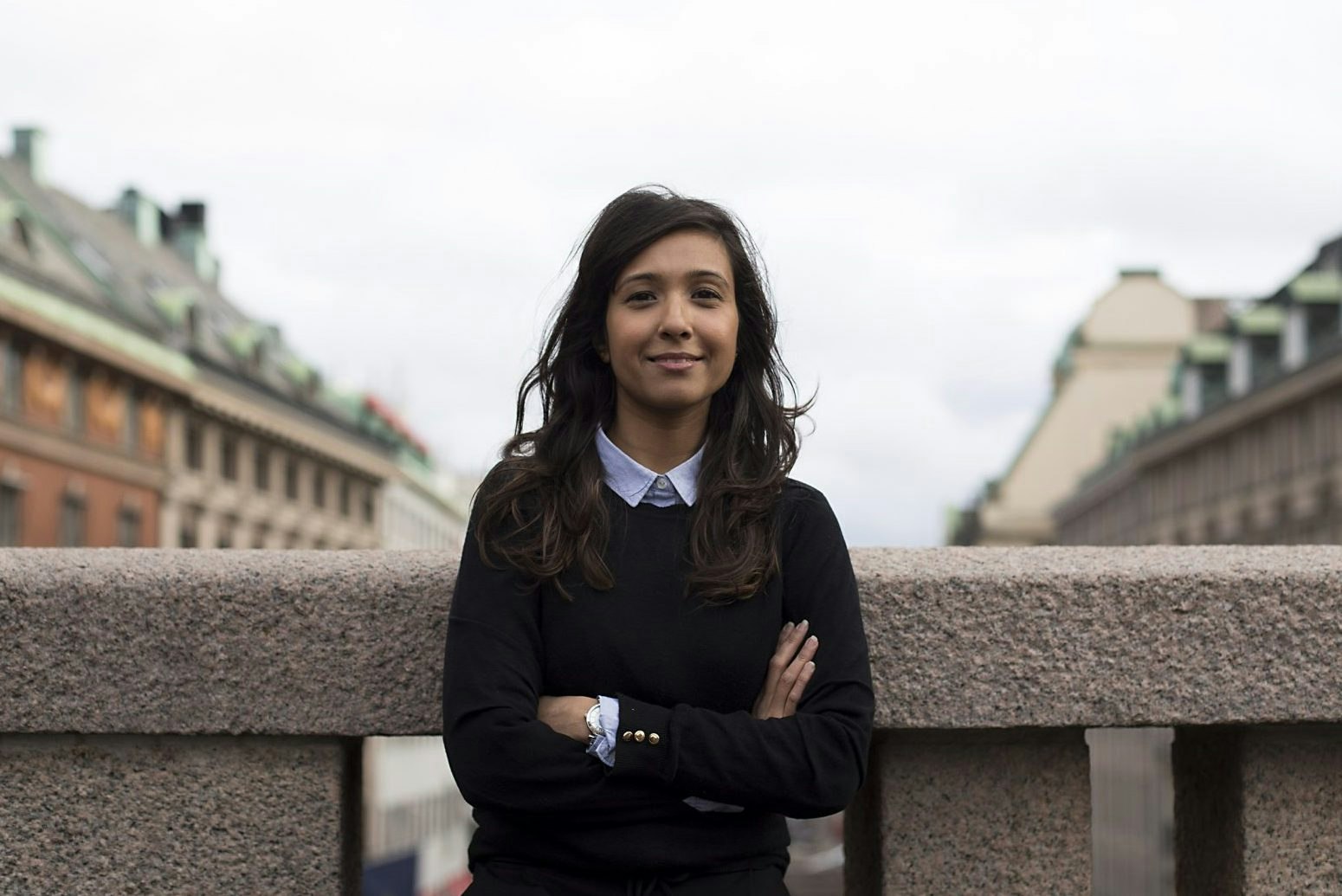Clearbanc, the world’s largest ecommerce investor, is coming to the UK with a $500m pot of money and a funding model that disrupts the way traditional VC investment works.
Instead of taking equity stakes in startups like a conventional VC, Clearbanc — founded by Canadian Dragons’ Den star Michele Romanow and her partner Andrew D’Souza — lends money for a 6-12% flat fee. It uses an AI-based model to decide which businesses to back, taking the human completely out of the decision making process.
Clearbanc has invested in 8x more female-led businesses than the VC industry average.
The results so far — after lending more than $1bn to more than 3,300 companies mainly in North America — has been to dramatically democratise access to capital. Clearbanc has invested in 8x more female-led businesses than the VC industry average — which was 2.8% in the US last year.
It also puts more money into companies located outside VC hotspots. In a UK pilot programme, where Clearbanc lent $30m to some 250 companies, more than 70% of investment went to companies located outside of London.
We wanted to change the whole system. There are quite a few things wrong with the current VC model.
“We wanted to change the whole system. There are quite a few things wrong with the current VC model. Companies’ ability to raise money often depends so much on their geography and access to investors,” says D’Souza. “We wanted to make it much easier for anyone to access funding, no matter where they were based.”
Another problem, says Romanow, is that founders often have to give up control of their companies too quickly to get enough money for day-to-day operations like online marketing.
The realisation came to her during the Dragons Den show.
It is crazy to use the most expensive form of funding to pay for something repeatable.
“We watched 250 pitches in 17 days. In pitch after pitch from ecommerce companies, we were asking the founders what they needed to raise money for and it was always for funding their advertising on Facebook and Google. Almost 50% of VC dollars raised are going to Facebook and Google,” says Romanow. “It seemed crazy that they were using the most expensive form of funding (VCs) and giving up equity to pay for something repeatable like that.”
Romanow saw one father-and-son mobile phone case business on Dragon’s Den, which was looking for $100,000 in investment and offering 20% of their company in exchange.
“It wasn’t the kind of company that was going to be sold to Apple for 10x in a few years, but it was a good business,” she says.
Instead of the equity-dilutive deal Romanow proposed an alternative arrangement — a loan with a 6% flat fee — as long as she could see their Facebook ad account. After founding and running successful Canadian ecommerce businesses Buytopia and SnapSaves Romanow believed she had a good sense for what “good” should look like there, and felt she could help the company optimise its efforts.
The experiment worked — Romanow made a small profit and hatched an idea for creating a platform to offer a similar deal to thousands more companies.
Just hiring a few more female partners at VCs isn’t going to change things enough. You need a completely different system.
Clearbanc has also added a programme that helps ecommerce companies with their inventory costs. Clearbanc buys the inventory upfront and the ecommerce retailer pays back the cost only when the goods are sold to customers.
Ecommerce companies joining the platform plug their revenue and marketing data into the Clearbanc system and receive an investment decision in 20 minutes, based just on these numbers.
A number of VCs such as InReach Ventures, Blossom Capital and EQT use AI to find promising startups in unusual places, but most would still have humans making the actual funding decision.
“It is taking the bias out of the funnel,” says Romanow, part of the reason why Clearbanc has ended up backing so many more women.
“We’ve been watching the numbers on VC investment into female-backed business not changing at all for years. I think just hiring a few more female partners at VCs isn’t going to change things enough. You need a completely different system.”
How it works:
Who can apply?
The platform is for any digital commerce business, mainly ecommerce companies, but it will also work for software companies, mobile app developers and B2B Saas companies. Companies need to already have a product-market fit and sales of around $10,000 a month to be fundable.
How much funding can you get?
$10,000 to $10m depending on the size of your business. Once you put your company information into the system, it will calculate the amount you can borrow.
Will you definitely get funding?
Some businesses will be judged too early. But if you stay connected to the platform, once your business reaches an investment-ready stage, Clearbanc will get in touch with you.
Can Clearbanc really make money this way?
“The system looks at a ton of data to de-risk decisions,” says Romanow.
It is also the opposite model to VCs, points out D’Souza. VCs take a lot of equity because the success rates of their portfolio companies are relatively low — only one in ten is expected to succeed and that one success pays for the rest.
“When you are a portfolio company in a VC, you are a lottery ticket. With us, we expect 99% of our companies to succeed,” says D’Souza.


